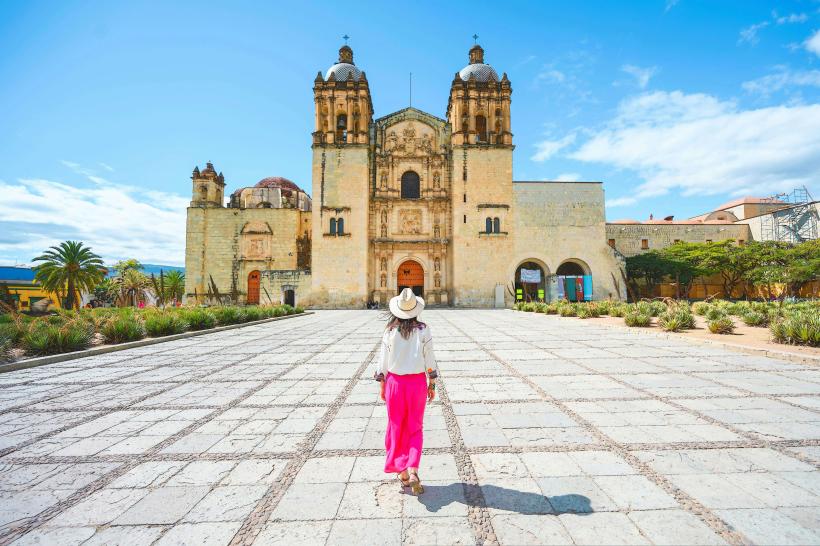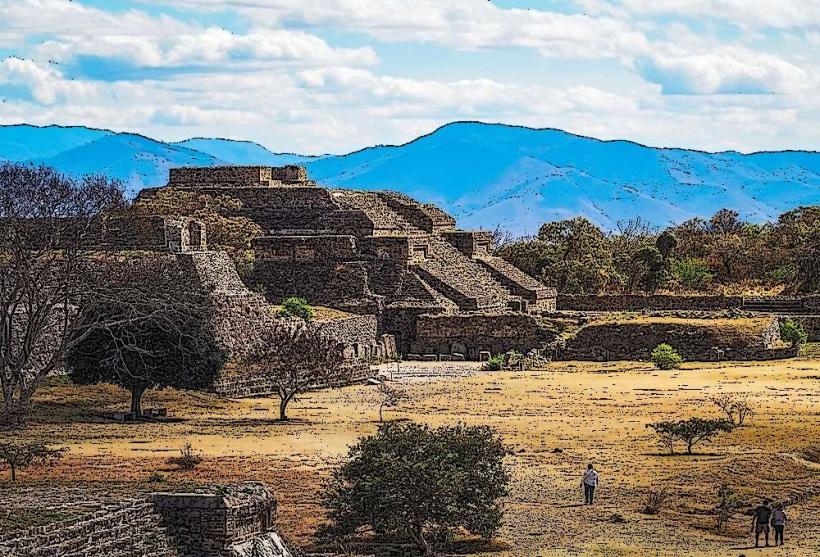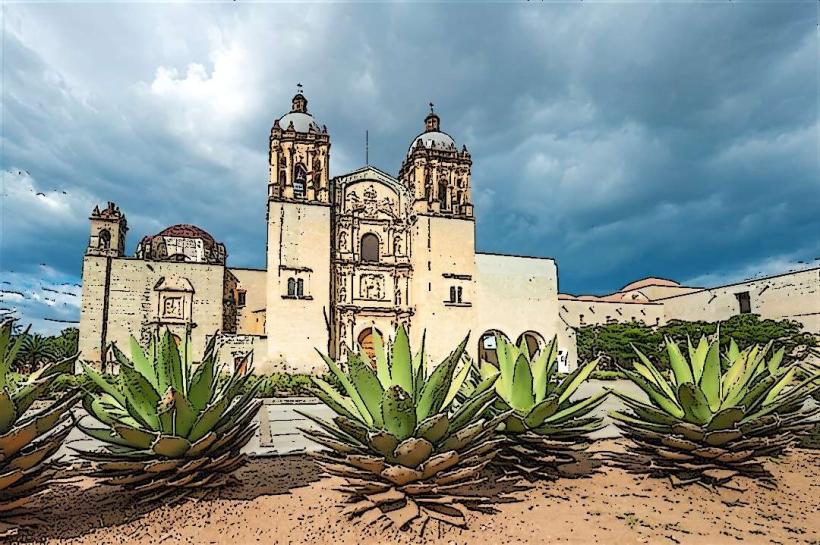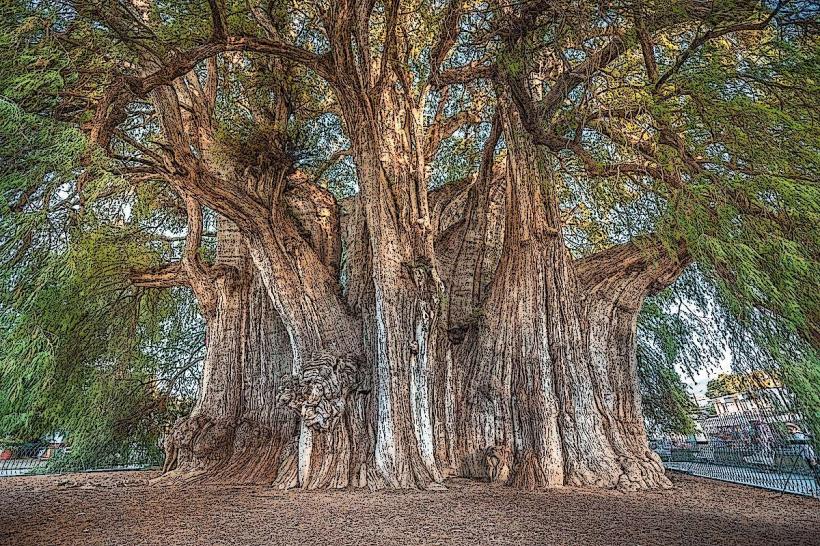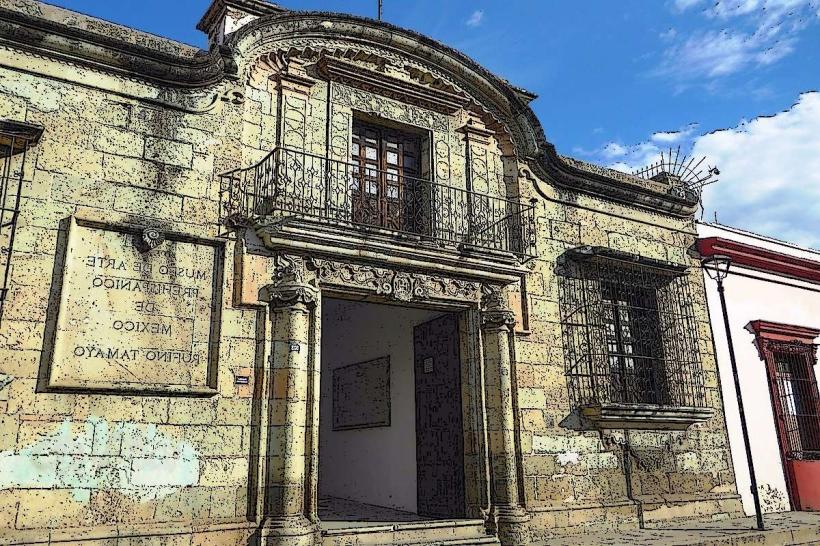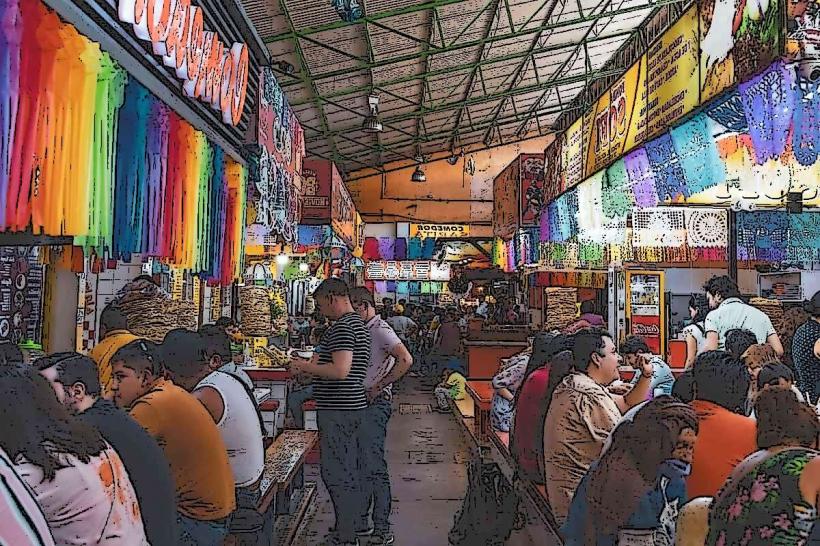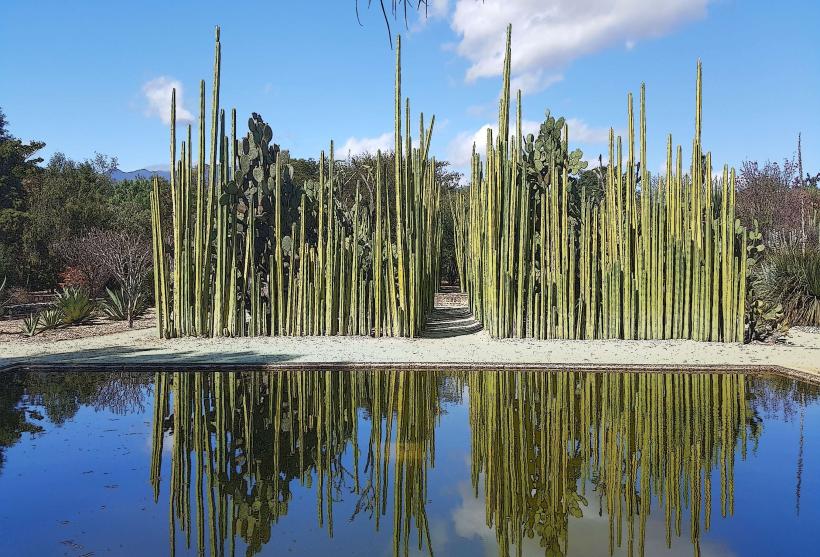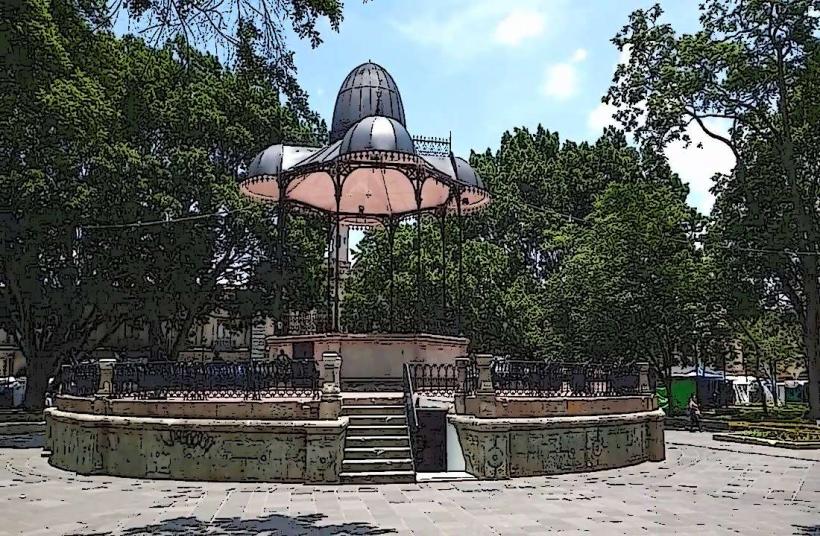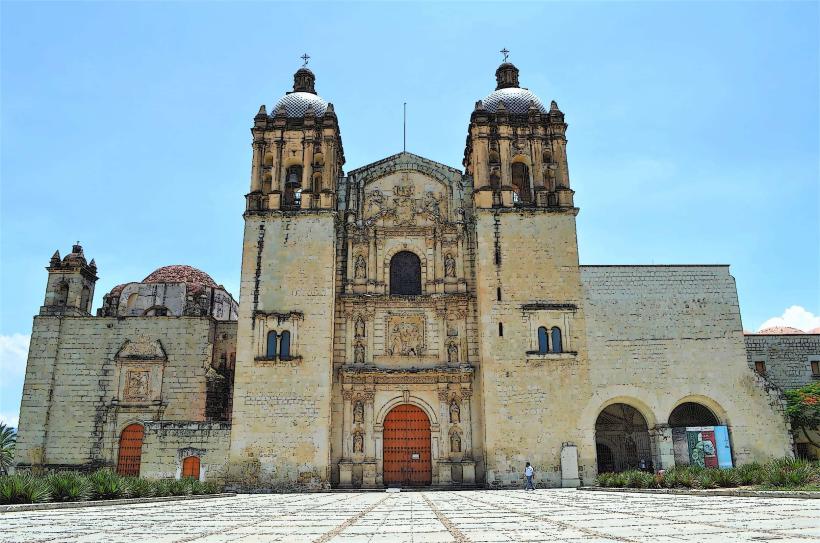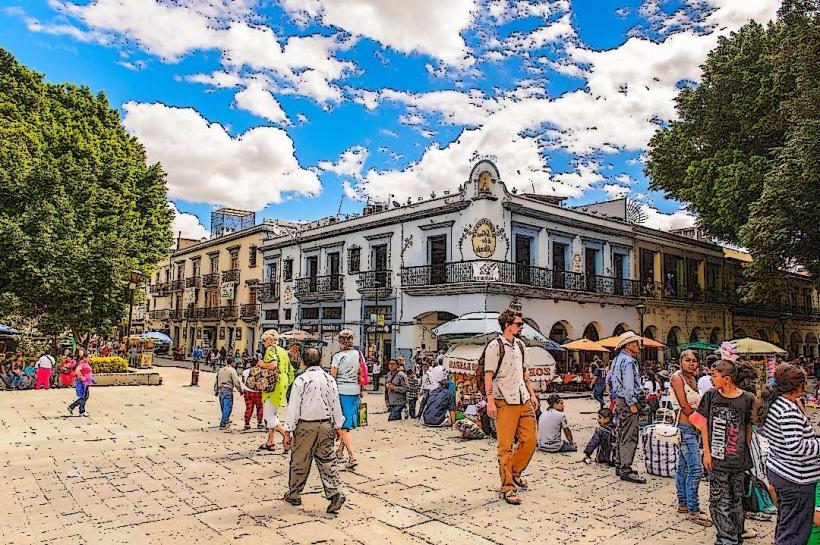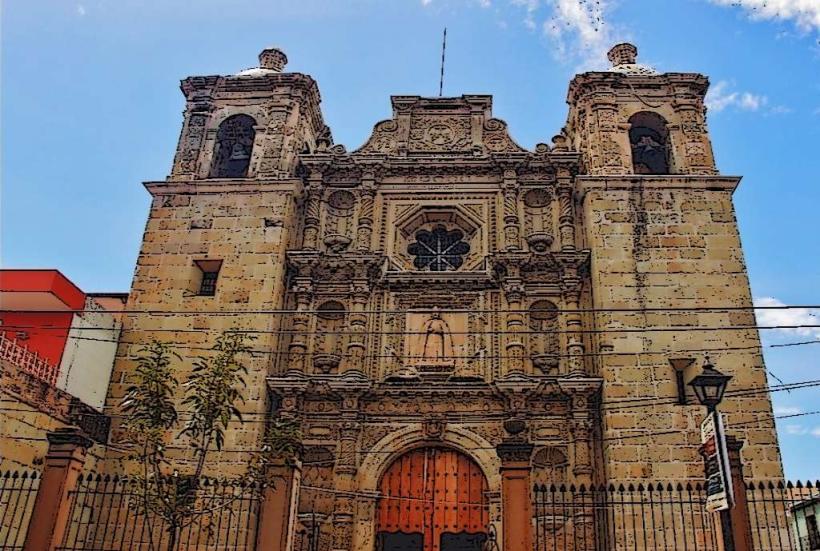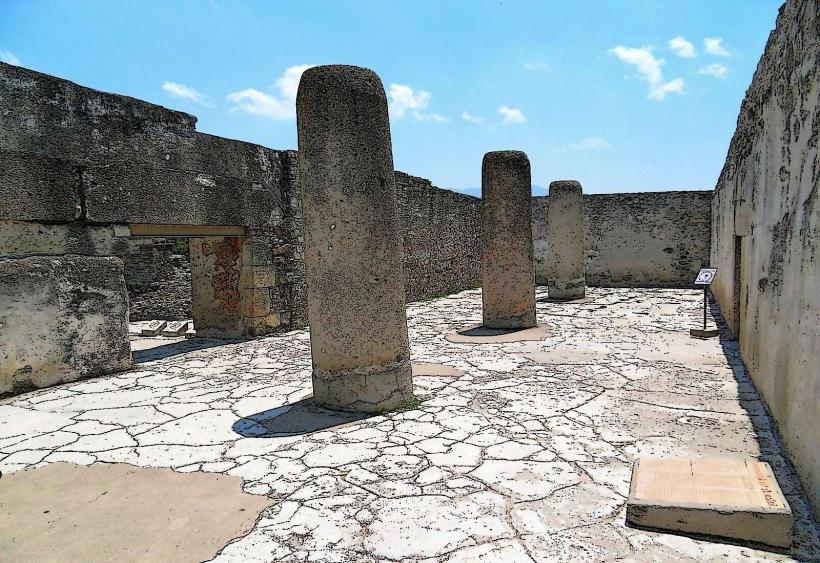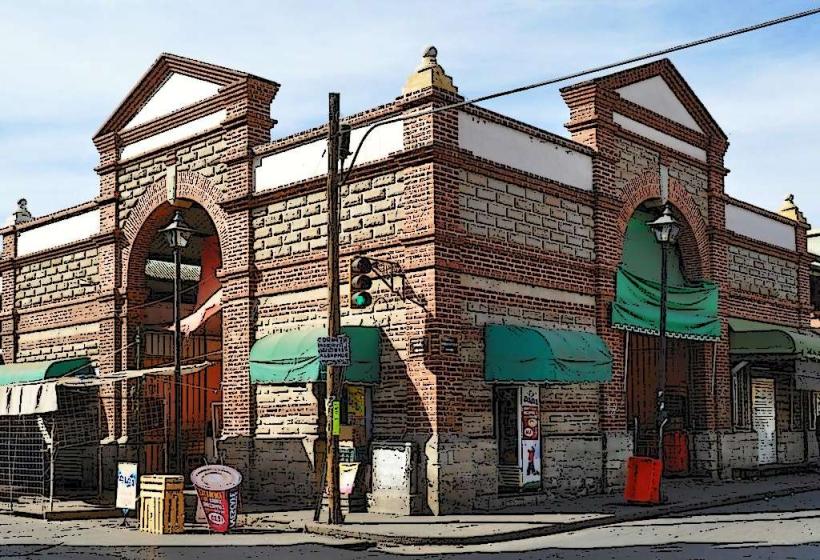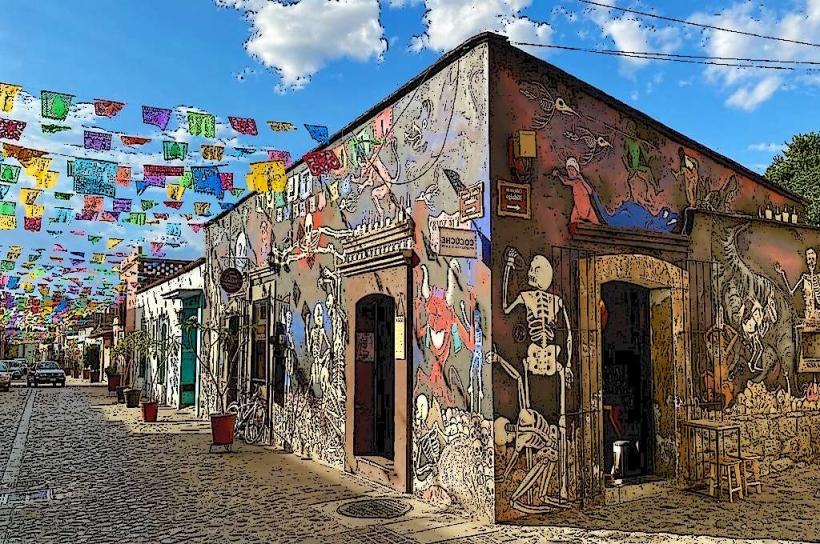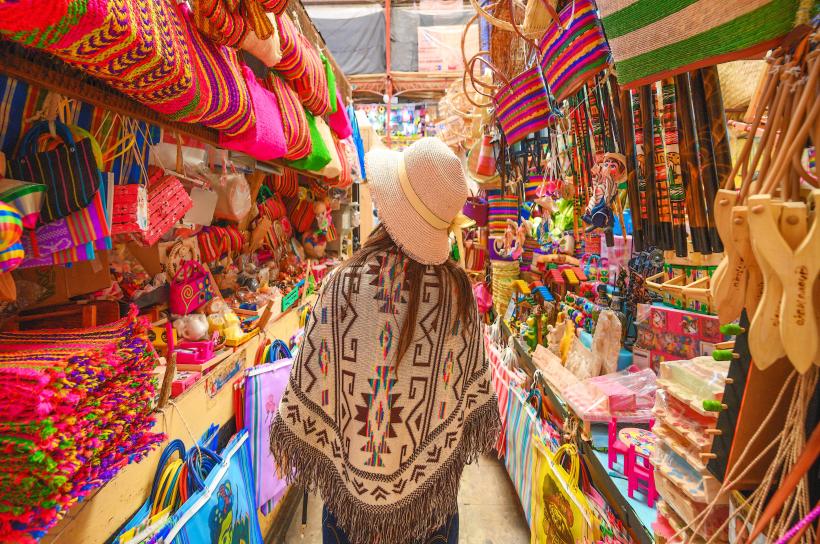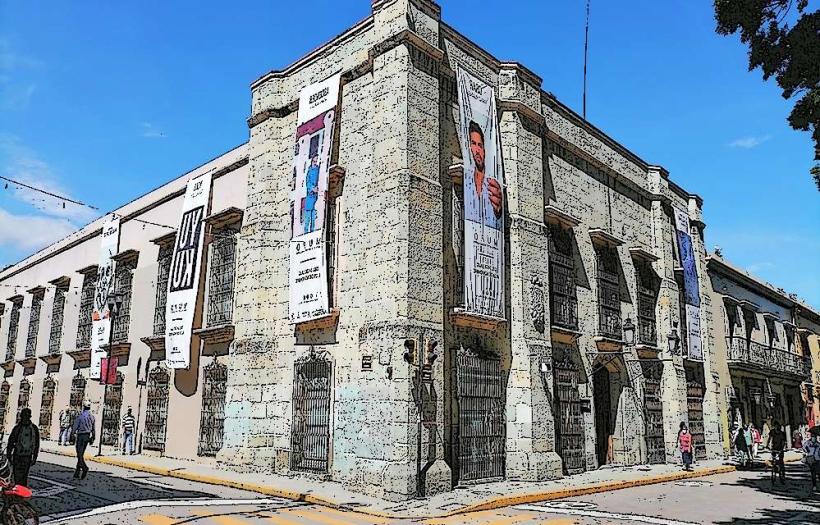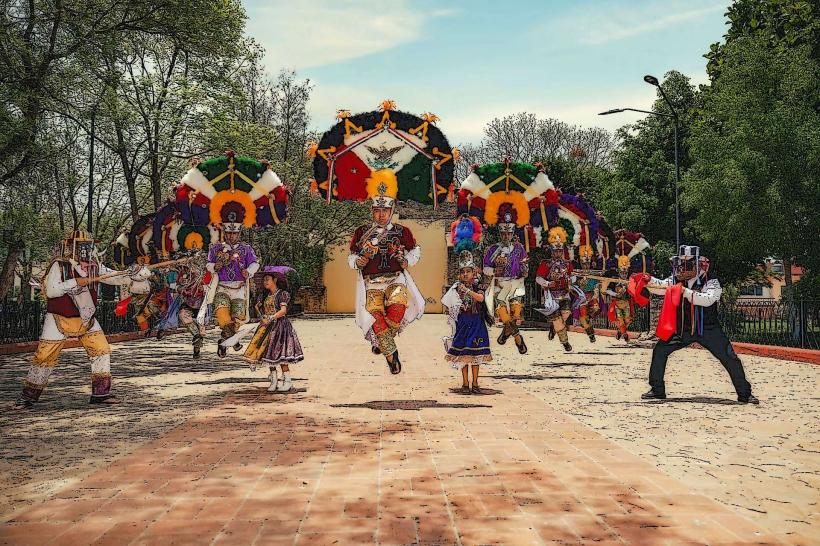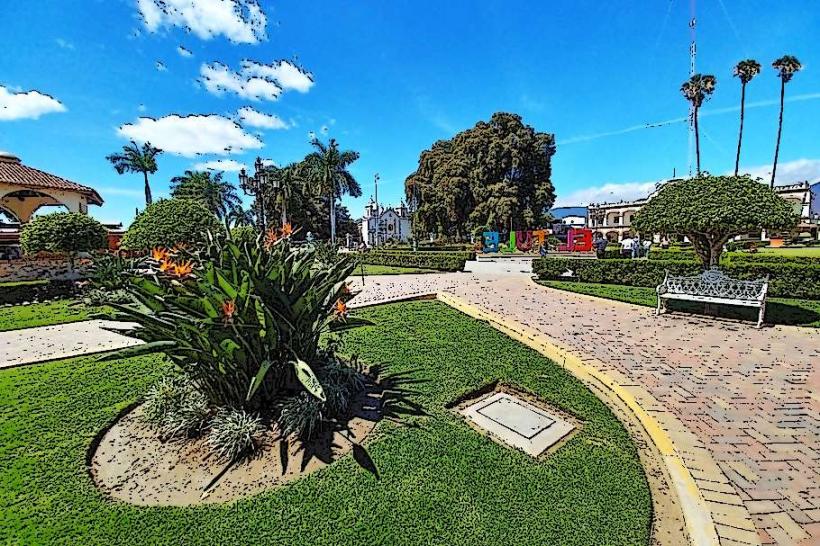Information
Landmark: Museo Rufino TamayoCity: Oaxaca
Country: Mexico
Continent: North America
Museo Rufino Tamayo, Oaxaca, Mexico, North America
The Museo Rufino Tamayo is an important museum dedicated to the work of one of Mexico’s most renowned artists, Rufino Tamayo. Located in Oaxaca City, this museum not only celebrates the life and artistic legacy of Tamayo but also showcases a significant collection of pre-Hispanic art, reflecting his unique approach to art and culture.
Here’s a detailed look at the Museo Rufino Tamayo:
1. Overview of Rufino Tamayo:
Rufino Tamayo (1899–1991) was a prominent Mexican painter and muralist known for his distinct style, which blended Mexican folk traditions with modern European influences. Tamayo’s work often explored themes of identity, humanity, and the cosmos.
Tamayo is particularly noted for his use of vibrant colors, symbolism, and abstract forms. He was a key figure in the development of modern Mexican art and a critic of the more politically driven murals that characterized much of the Mexican muralist movement.
Beyond painting, Tamayo was deeply interested in Mexican culture, particularly indigenous traditions, which is reflected in his later works and his interest in pre-Hispanic art.
2. Museum History:
The Museo Rufino Tamayo was founded in 1991 in the historic center of Oaxaca City to honor the artist's contributions to Mexican art. The museum was designed with Tamayo's vision in mind, and its mission is to celebrate his legacy and support the appreciation of both modern and pre-Hispanic art.
Tamayo himself was instrumental in the creation of the museum, as he donated a substantial portion of his private collection of pre-Hispanic artifacts, which makes this museum unique compared to others dedicated solely to modern art.
3. Architectural Design:
The museum is housed in a beautiful colonial-era building, which was renovated to house the museum’s collection. The architecture is a blend of the historic charm of Oaxaca with modern design elements that reflect Tamayo's own artistic tastes.
The museum features a spacious exhibition hall, a beautiful courtyard, and open-air spaces, providing a peaceful and contemplative environment for viewing art. The building itself is an architectural gem, with its stone walls and open-air terraces offering views of the surrounding area.
4. Exhibits and Collections:
Rufino Tamayo’s Works: The museum houses a significant collection of Tamayo’s paintings, drawings, and sculptures, showcasing the full range of his artistic development over the years. His works include abstract compositions, portraits, and vibrant depictions of Mexican life, all executed in his characteristic style.
The paintings reflect his mastery of color and form, often blending Mexican symbolism with international modernist trends. His works feature themes like human figures, animals, and the natural world, imbued with a sense of both mysticism and vitality.
The sculptures on display offer a more tactile expression of his vision, with powerful shapes and forms that often evoke pre-Hispanic and modernist influences.
Pre-Hispanic Art: One of the most unique aspects of the Museo Rufino Tamayo is its extensive collection of pre-Hispanic artifacts, which Tamayo personally collected throughout his life. These objects were crucial in shaping his view of Mexican identity and culture.
The museum's pre-Hispanic collection includes ceramics, stone sculptures, jewelry, and textiles from various ancient cultures of Mesoamerica, including the Zapotec, Mixtec, Maya, and Olmec civilizations.
This collection not only honors the artistic traditions of ancient Mexico but also showcases Tamayo's deep respect for indigenous cultures and his belief in the importance of preserving these works of art.
Temporary Exhibitions: In addition to its permanent collections, the museum regularly hosts temporary exhibitions that explore various aspects of modern and contemporary art. These exhibitions often highlight the work of other Mexican and international artists, further enhancing the cultural exchange and dialogue that the museum fosters.
5. Key Themes in the Museum’s Collection:
Mexican Identity and Symbolism: Rufino Tamayo’s work often dealt with themes related to Mexican identity, exploring the relationship between modern Mexico and its pre-Hispanic past. This is evident in his use of symbolism and color to evoke feelings of both nostalgia and pride in Mexican cultural heritage.
Universal Human Themes: Tamayo’s work is also notable for its engagement with universal themes of humanity, such as existence, suffering, and the struggle between life and death. His paintings often depict human figures and animals in a manner that transcends specific cultural boundaries, creating work that is both distinctly Mexican and universally relatable.
Abstract Art: Tamayo was a pioneer in abstract art in Mexico, blending modernist approaches with traditional Mexican influences. His work often incorporates abstract forms, vibrant colors, and symbolic elements that allow the viewer to connect with both the emotional and intellectual aspects of the art.
6. Visitor Experience:
The Museo Rufino Tamayo offers a quiet, reflective experience for art lovers and history enthusiasts alike. The museum is relatively small compared to others in Oaxaca, but it offers a more intimate and focused view of Tamayo’s work and his connection to pre-Hispanic art.
The spacious galleries allow visitors to experience the works of Tamayo in a calm, relaxed setting. The museum’s open-air spaces provide an opportunity to step outside and enjoy the views of the surrounding area, creating a serene atmosphere for contemplation.
Guided Tours: For those who wish to learn more about Tamayo’s life and work, the museum offers guided tours in Spanish, and sometimes in English, providing deeper insight into the artist’s philosophy, his relationship with Mexican culture, and the significance of his art.
The museum also provides educational programs and workshops, making it a great destination for families and students interested in learning about art and culture.
7. Practical Information:
Location: The Museo Rufino Tamayo is located in the historic center of Oaxaca, just a short walk from other key attractions like the Zócalo, the Templo de Santo Domingo, and the Museo de las Culturas de Oaxaca.
Opening Hours: The museum typically operates from 10:00 AM to 6:00 PM, but it’s always a good idea to check for any changes in schedule, especially during holiday periods.
Admission Fees: The museum charges an entrance fee, which is typically affordable. There may be discounts for students and residents of Oaxaca.
Gift Shop: The museum features a gift shop where visitors can purchase reproductions of Tamayo’s artwork, as well as books, postcards, and other souvenirs related to his work and the museum’s collection.
8. Conclusion:
The Museo Rufino Tamayo offers a unique and enriching experience for anyone interested in Mexican art and culture. It provides a fascinating look at the work of one of Mexico's most influential modern artists, as well as his deep connection to the rich cultural heritage of Oaxaca and Mexico as a whole. Whether you're an art lover, a student of history, or simply curious about the cultural landscape of Oaxaca, this museum is a must-visit destination in the city.

